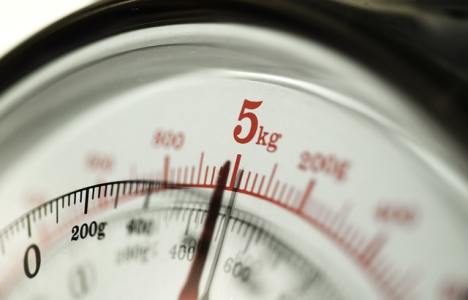Will you be weighed before you fly? Air New Zealand's latest policy sparks debate!
It seems that flying to New Zealand will have passengers hopping on the scales before they board their flight. This 'weighty issue' has been introduced by Air New Zealand, who will be weighing passengers along with their luggage over the next five weeks.
The Kiwi carrier will conduct this survey to determine the average weight of flyers. The data collected will help the airline determine the overall weight onboard the aircraft, aiding in more accurate calculations of fuel needed and total weight distribution, and ultimately contributing towards more efficient, eco-friendly and safe flights.

Rest assured, passengers passing through Auckland International Airport should note that two scales will be set up at gate lounges, and your participation in the survey is entirely voluntary and anonymous.
Air New Zealand load control specialist, Alastair James, addressed potential concerns, stating: 'We know stepping on the scales can be daunting. We want to reassure our customers there is no visible display anywhere.'
He further explained, 'For passengers or customers, crew and their cabin bags, we use an average weight and that average weight comes from this survey.'
While this policy might seem unusual, James clarified that it's essential for accurately determining the average weight on flights. The survey will take into account the weight of passengers, crew, luggage, cargo, and even the meals onboard.
Air New Zealand has conducted similar surveys every five years, illustrating their ongoing commitment to improving the overall flight experience and reducing their environmental footprint.
By accurately determining the total weight of passengers and their belongings, airlines can optimise fuel calculations and enhance the eco-friendliness of the flight experience. It assists in assessing the amount of weight an aircraft needs to carry for a safe journey and enables effective fuel planning, leading to reduced emissions and improved resource management.
Not only does understanding passenger and luggage weight contribute to fuel efficiency, but it also impacts aircraft design and environmental performance. By reducing oxygen intake and emissions, airlines can enhance their overall environmental footprint. Additionally, improved fuel efficiency results in cost savings for the airline, as they purchase less fuel. This could lead to cheaper tickets for passengers.
When combined, these factors significantly enhance the airline's environmental performance and operational efficiency.

We want to hear your thoughts! Would you be happy to participate in such a survey for the greater good of the environment and flight efficiency? Or does the idea of stepping on a scale in an airport environment make you uncomfortable? Feel free to share your opinions!
The Kiwi carrier will conduct this survey to determine the average weight of flyers. The data collected will help the airline determine the overall weight onboard the aircraft, aiding in more accurate calculations of fuel needed and total weight distribution, and ultimately contributing towards more efficient, eco-friendly and safe flights.

Participants will be required to step onto a scale themselves and place their luggage on a separate weighing scale. Image by Rudy and Peter Skitterians from Pixabay
Rest assured, passengers passing through Auckland International Airport should note that two scales will be set up at gate lounges, and your participation in the survey is entirely voluntary and anonymous.
Air New Zealand load control specialist, Alastair James, addressed potential concerns, stating: 'We know stepping on the scales can be daunting. We want to reassure our customers there is no visible display anywhere.'
He further explained, 'For passengers or customers, crew and their cabin bags, we use an average weight and that average weight comes from this survey.'
While this policy might seem unusual, James clarified that it's essential for accurately determining the average weight on flights. The survey will take into account the weight of passengers, crew, luggage, cargo, and even the meals onboard.
Air New Zealand has conducted similar surveys every five years, illustrating their ongoing commitment to improving the overall flight experience and reducing their environmental footprint.
The Impact of Passenger and Luggage Weight on Fuel Efficiency and Emissions
Integrating the results of passenger surveys, such as Air New Zealand's voluntary weighing scales at the gate, can bring about helpful changes across the airline industry. This process provides crucial insights into average passenger weights and luggage, enabling airlines to make informed decisions on fuel efficiency, flight costs, and overall aircraft safety.By accurately determining the total weight of passengers and their belongings, airlines can optimise fuel calculations and enhance the eco-friendliness of the flight experience. It assists in assessing the amount of weight an aircraft needs to carry for a safe journey and enables effective fuel planning, leading to reduced emissions and improved resource management.
Not only does understanding passenger and luggage weight contribute to fuel efficiency, but it also impacts aircraft design and environmental performance. By reducing oxygen intake and emissions, airlines can enhance their overall environmental footprint. Additionally, improved fuel efficiency results in cost savings for the airline, as they purchase less fuel. This could lead to cheaper tickets for passengers.
When combined, these factors significantly enhance the airline's environmental performance and operational efficiency.
Key Takeaways
- Air New Zealand will be conducting a survey by weighing passengers and their luggage over the next five weeks.
- The data collected during this survey will be used to determine the average weight of flyers and everything onboard a flight.
- Two scales will be set up in gate lounges at Auckland International Airport for the survey, which is voluntary and anonymous.
- This survey is conducted every five years by Air New Zealand and is critical for determining the average weight on flights and ensuring safety.
We want to hear your thoughts! Would you be happy to participate in such a survey for the greater good of the environment and flight efficiency? Or does the idea of stepping on a scale in an airport environment make you uncomfortable? Feel free to share your opinions!







